What is self-esteem?

Artwork credit: @stacieswift. In blue, light pink, yellow, orange, turquoise and pink the text reads: 'Hey! You'. The text underneath reads: 'are loved and you matter to me plus you have a lovely smile'.
Self-esteem is how we think, see and feel about ourselves. It isn’t just about how we physically look but also how confident we feel.
Good self-esteem means we feel good about ourselves and confident in who we are and in our abilities. When we have good self-esteem, we’re not too worried about what other people think, or how much we get wrong, because we accept ourselves just the way we are, without judgment. It also means we believe we are worthy and deserving of all the good things in life.
But sometimes, we might find it hard to believe in ourselves and feel good enough. That’s okay - it’s normal to struggle with our self-esteem and this can change at different times in our lives.

When we talk about self-esteem
we’re often talking about lots of different things, such as:
- confidence– if we are struggling with our self-esteem, we may not feel confident doing things, even if we have done them before and know we can do them
- how much we recognise and value the skills we have, like if we are good at a subject at school, at making people laugh, or our hobbies
- how able we feel to share our opinions and ideas, and whether we believe what we have to say matters and is worth other people hearing
- how comfortable we are with getting things ‘wrong’ and our ability to brush things off and realise that our mistakes and ‘failures’ do not define us
- how we treat ourselves, and if we are kind to ourselves and practice self-care
- how we think and feel about ourselves physically, also known as our body image. Read our guide on body image for tips and advice on feeling comfortable with how you look
You are amazing, unique, and you have brilliant talents that no one else has.

When we believe in ourselves, feel comfortable in our bodies and have the confidence to share our thoughts with others, these can be signs of having good self-esteem.
But sometimes, feeling confident can be tough. We might have negative thoughts about ourselves, worrying that we aren’t good enough or that we could’ve done things better. Often this is because we are comparing ourselves negatively to others, and feeling like we aren’t as good as them or focussing on all the things we don’t have that our friends seem to.
If you are having these negative thoughts with your confidence, that’s okay. Lots of us struggle with these feelings too sometimes – you are not alone.
What can cause low self-esteem?
There are lots of different things that can cause low self-esteem, including things that have happened to us in the past, our mental health, or difficult situations at home. It can also be affected by things like:
- problems at school
- bullying
- a traumatic experience
- abuse or neglect
- friendships or relationships
- school or exam stress
- mental health problems
- physical health problems
- feeling under pressure from social media to look or act a certain way
- experiencing discrimination
If you are struggling with a mental health problem like anxiety or depression, you might feel down, anxious or have negative thoughts about yourself. You might feel like it stops you from doing certain things, which can lower your confidence.
Low self-esteem can also come from the way people in our lives treat us, for example if we are experiencing bullying. But the way we talk to ourselves – or about ourselves – can also affect our self-esteem. If you find you often talk about yourself negatively around others, even if it’s as a joke, sometimes this can have a negative impact on the way you feel about yourself.
If you are having these negative thoughts and feelings about yourself, you might be struggling with your self-esteem. You might find that things like going out with friends, getting dressed or completing homework feel harder or cause you anxiety. For example, you might be worried that you won’t do the homework well or have anything to say to your friends.
Having low self-esteem can happen at any point in your life. You might find that you struggle with it at different points in your life (like after a break-up, or if you’re being bullied, or finding it hard to get a job), or it can happen continuously throughout your life. Low self-esteem can make you feel quite down or anxious. It can also lead to:
- depression
- feelings of worthlessness
- feelings of isolation and loneliness
- experiencing panic attacks
- feeling like you need to please other people and put everyone else’s happiness before your own
- putting yourself in risky or dangerous situations
- accepting people not treating you well
- taking responsibility or blaming yourself for other people’s actions
- struggling to say ‘no’ or set healthy boundaries
- struggling to make decisions
If you are experiencing any of the feelings above, know that you can get through this and it can get better.
What to do if you are struggling with your self-esteem
If you are struggling with your self-esteem, here are some things that you can do to start to feel more confident in yourself.
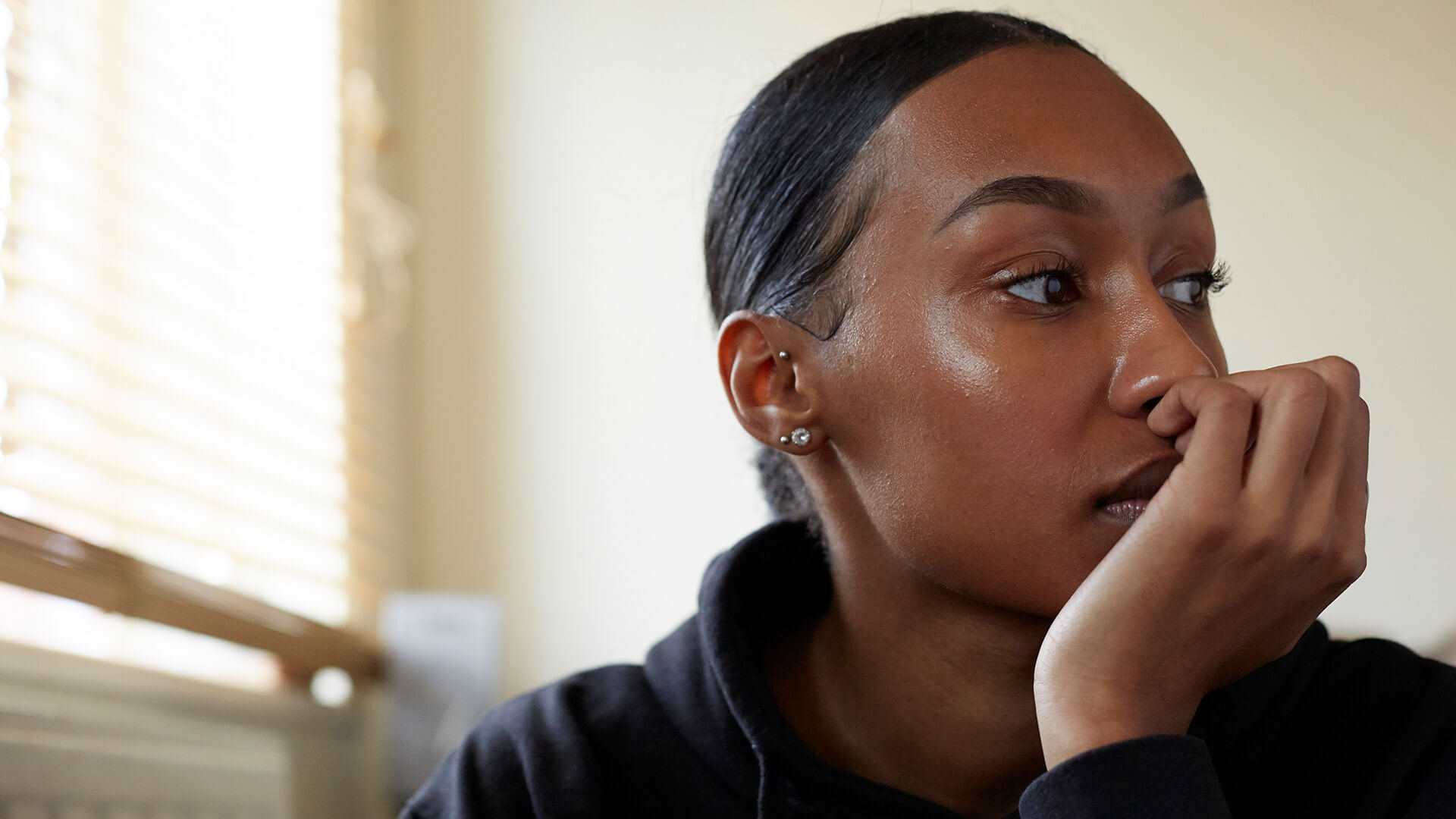
Understand why you focus on the negatives
This can feel quite difficult at first, but understanding why you focus on the negatives can help you think about what is causing you to have low self-esteem. To help you understand why you focus on the negatives, ask yourself:
- What negative things do you think about yourself?
- When did you start thinking these things?
- What has happened or is happening to make you think this way?
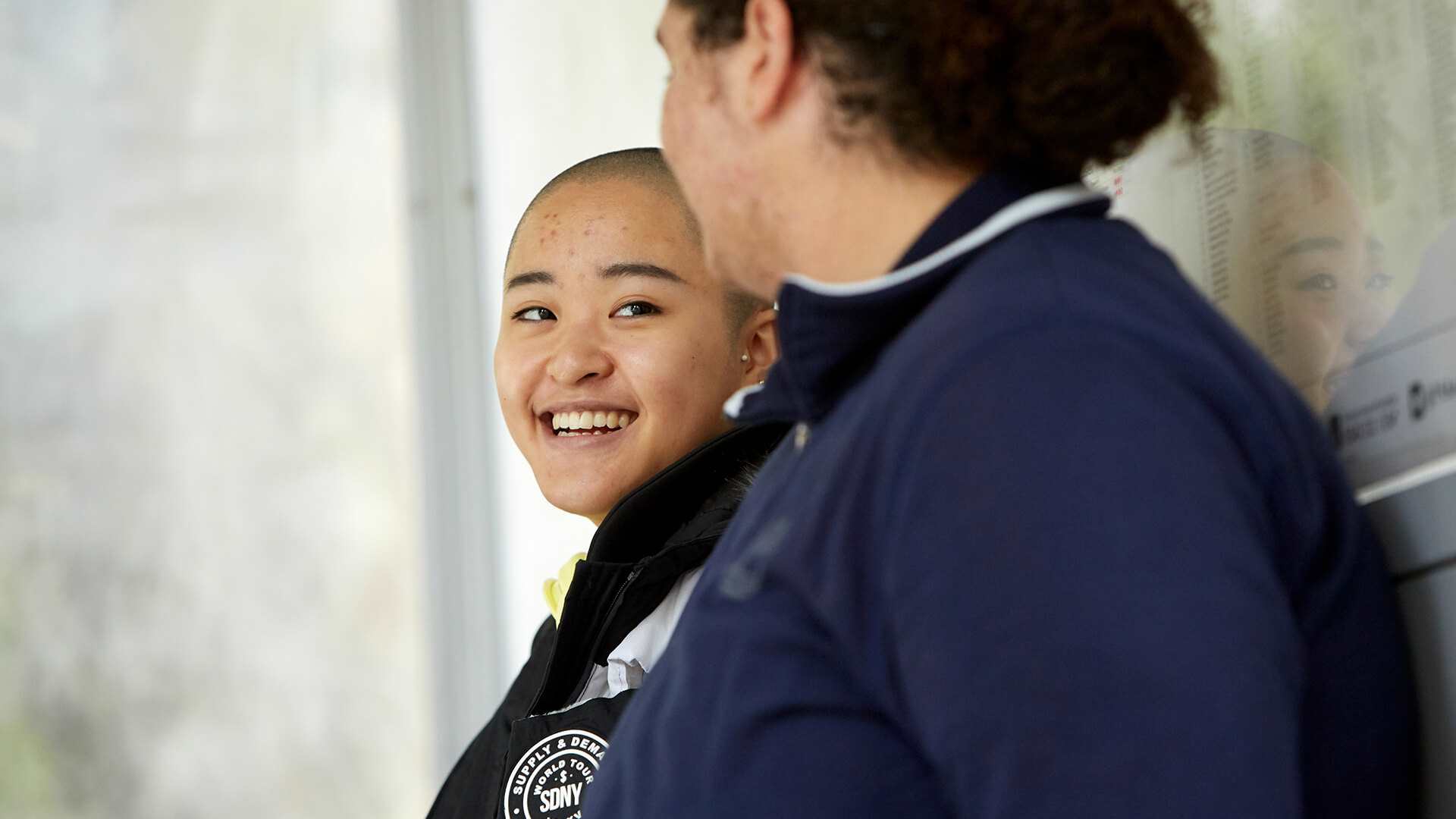
Challenge your negative thoughts
When you start thinking negative things about yourself, consider whether there is another way of looking at them. You might struggle with negative feelings because you feel like you have to do things ‘perfectly’ all the time. When you haven’t done something perfectly, you might feel like you ‘failed’. Instead, you could look at these moments and think ‘I did okay there’, or, ‘it didn’t go to plan, but I got through it’. By looking at situations from this point of view, it can take away the pressure to be ‘perfect’.
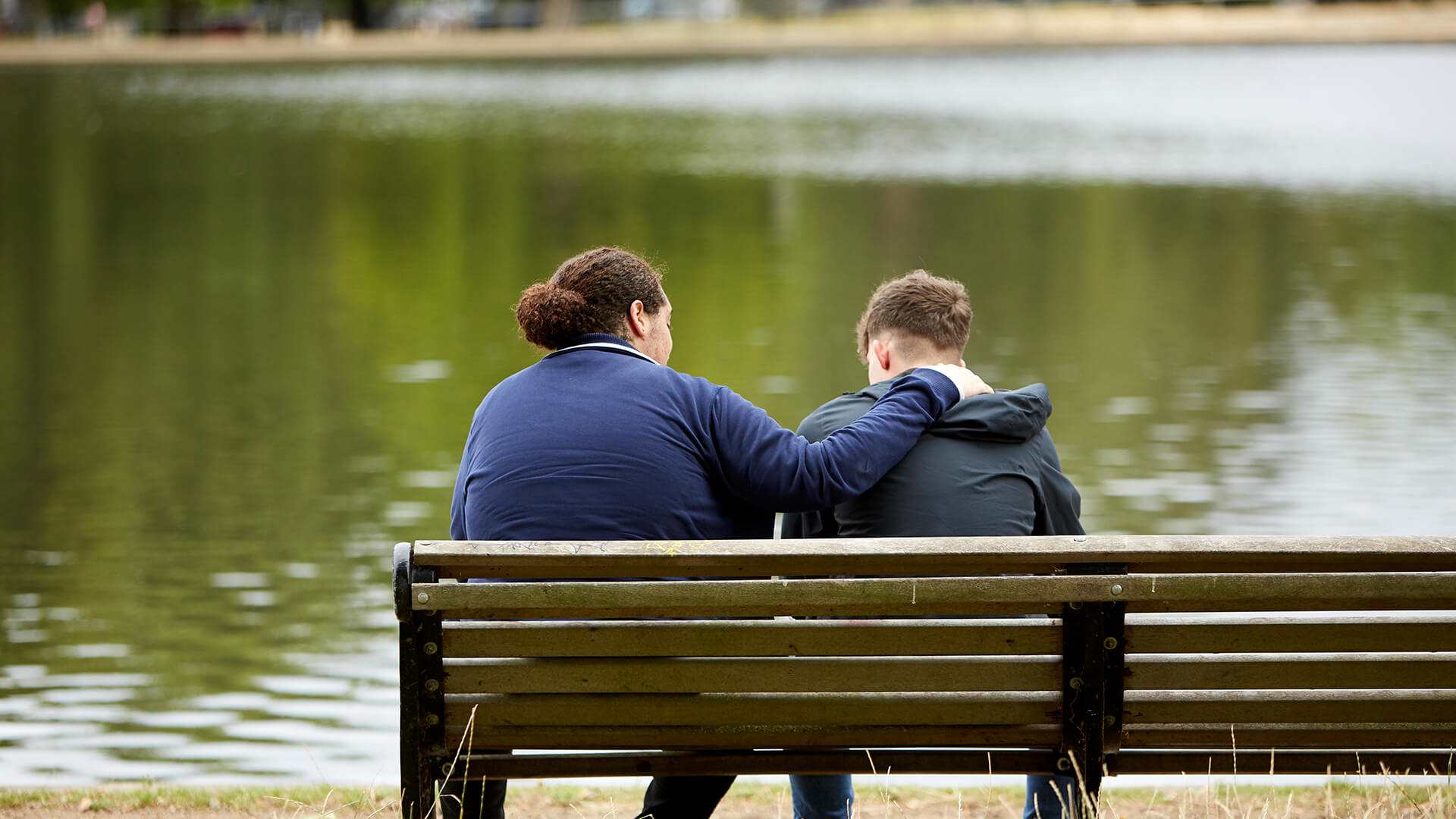
You could also:
- Think about what advice you would give to a friend who is struggling with these negative feelings; how would you help them to feel better?
- Remind yourself of times that prove these negative thoughts aren’t true. They don’t have to be big events, it can be small everyday things like when you felt good in an outfit or when you shared your thoughts in class. These positive moments can act as reminders that you can do it and that you do matter.
- You can also write these positive moments down so you have them to hand when you start to think negatively.

Focus on the positives
Write down your best feature, the last time you received a compliment, or the last time you did something for someone that made you feel good. These might seem like small things, but it is important to recognise all the good things about you, and the reasons why people appreciate you.
Try the “inner-child visualisation” technique
Talking to your 'inner child' can be a powerful way to recognise the good things about yourself. It can help you release negative feelings that are holding you back and to help you to be kinder to yourself. Watch the video to find out how this works.
There are so many things you can do. Find hobbies and passions that you enjoy. Try hanging out with people who make you feel better about yourself.

Artwork credit: @Sravya_Attaluri. On a white background is a pink, orange, yellow, mint green and purple rainbow. In front of the rainbow is a purple foam finger that is pointing upwards. On the foam finger, the text reads: '#1fan go me'. Underneath the foam finger is the text: 'be your own biggest fan'. There are arrows and stars around the foam finger.
Set yourself some goals
Setting yourself small goals and achieving them can help you see how capable you are. This might be trying a new hobby, wearing a new outfit, or just getting dressed for the day. Whatever it is, it’s important to celebrate your achievements and give yourself the credit you deserve.
Take time to do things you enjoy
Whether it is drawing, taking part in a sport or going for a walk, taking time to do things that make you feel good can help you switch off and relax. Find out the different ways you can take time out.
Finding the right people for you
Sometimes, low self-esteem can come from others who might make comments about you. You might not always realise how the people around you are making you feel. By reflecting on how people are treating you, you can start to see who makes you feel good and spend more time with them. Remember, people value you for many different reasons.
By focusing on the positives and taking note of the good things about yourself, you can celebrate what makes you, you.
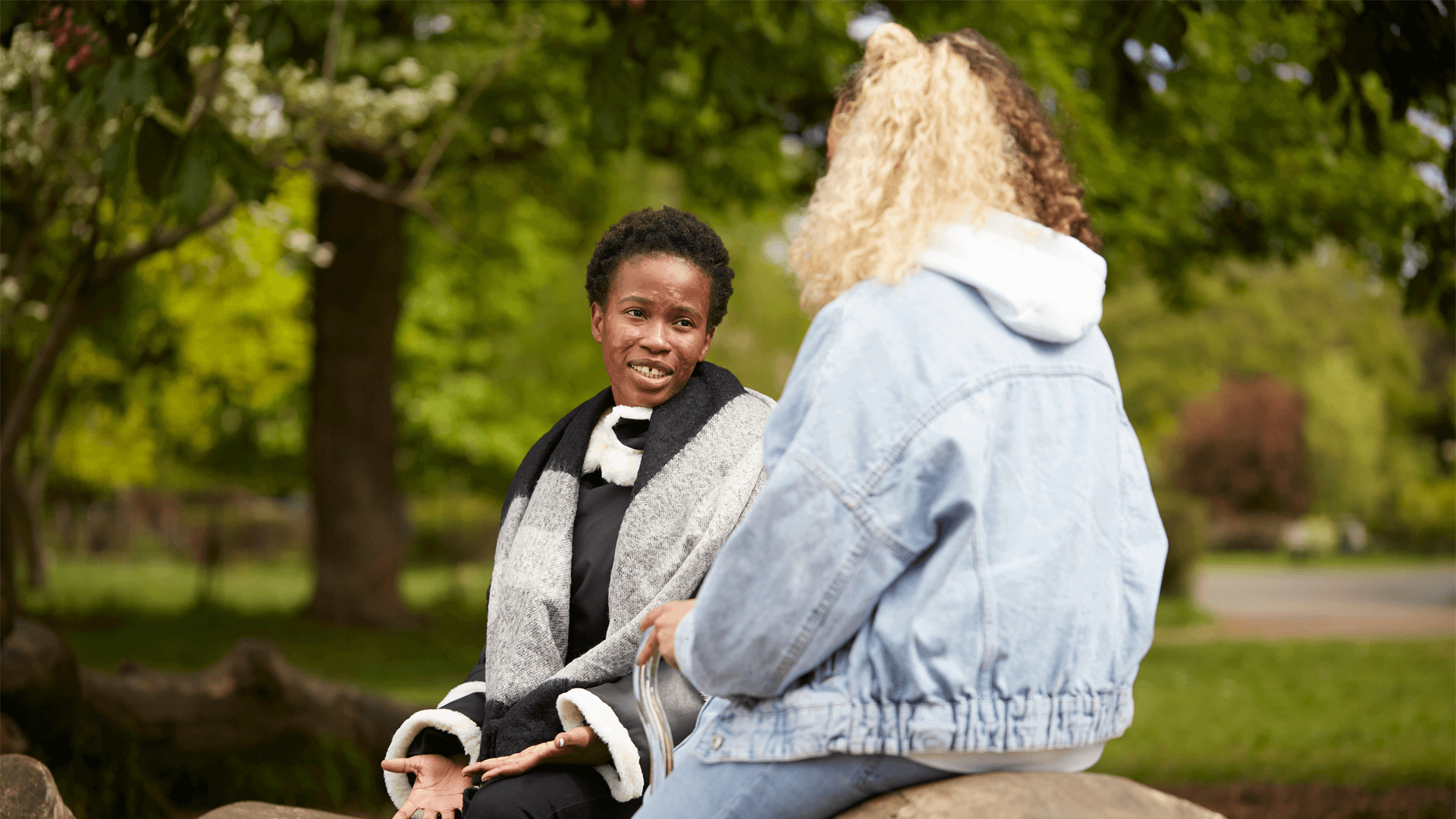
Tell someone
If you’re really struggling with low self-esteem and negative feelings about yourself, talk to someone you trust, like a family member, teacher or school nurse.
If you are struggling with low self-esteem and it’s making you feel anxious, low in mood or is stopping you from doing everyday things, like eating, sleeping, or going to school or work, you could talk to your GP. They can tell you what support might be available to you in your area.
Our Activists share their tips on what helped them feel better about themselves:
How you can support a friend who is struggling
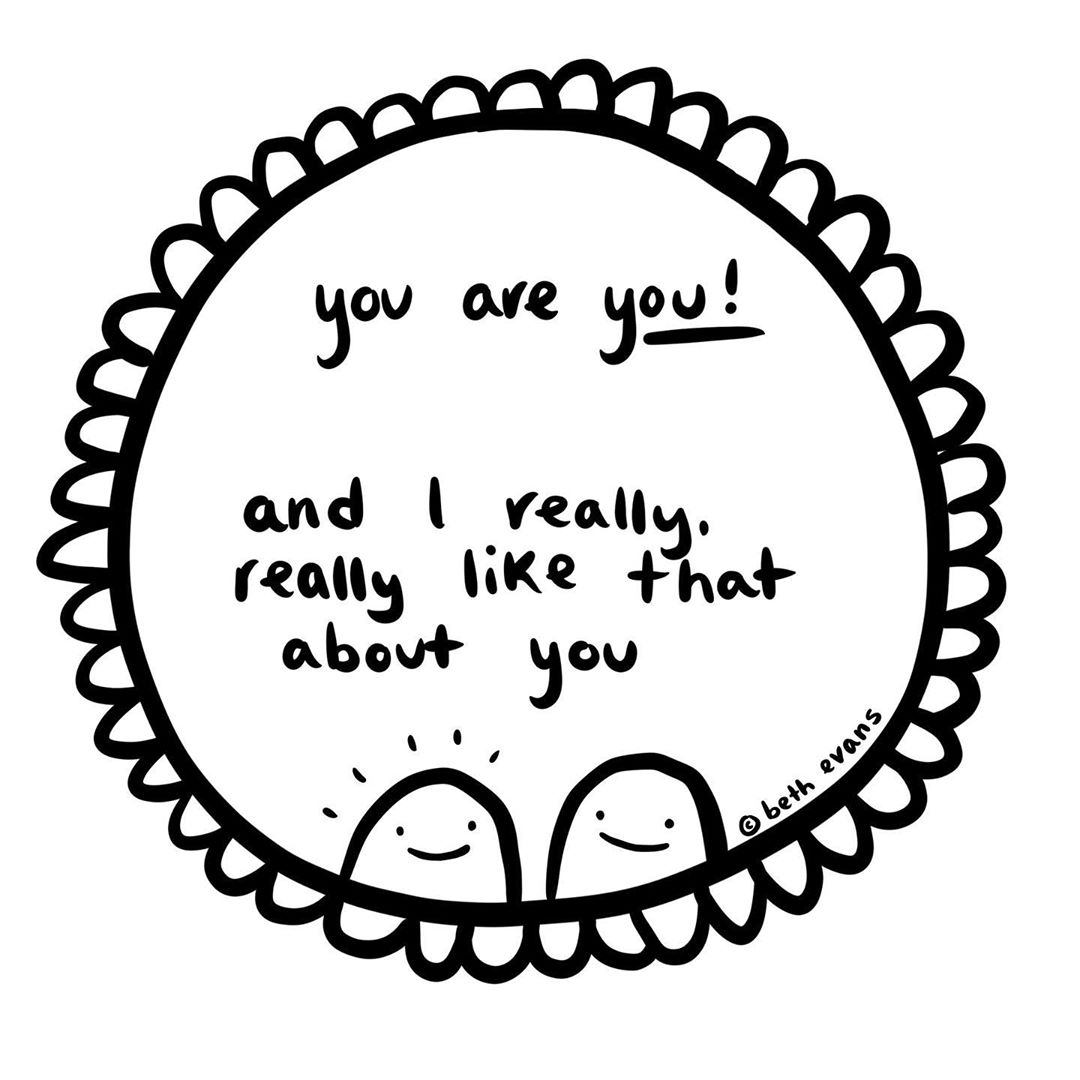
Artwork credit: @beth_evans. On a white background is a black circle with little petals around it. Inside the circle, the text reads: 'you are you! and I really, really like that about you'. Below the text are two faces looking at each other, both smiling.
If your friend is struggling with their self-esteem, here are some things that you can do to support them:
- Spend some time chatting through with your friend the things they like about themselves. They might find this difficult at first so you could start the conversation by saying what you like about them. It will reassure them that they are loved and help them to see their positives qualities.
- Encourage them in situations they feel nervous about. You could remind them of what they like about themselves, or times when they have got through a tough situation.
- Encourage them to seek help, by talking to a trusted adult or seeing their GP for professional help.
For more information and advice on supporting a friend, take a look at our page.
Getting help
Where to get help
If you don't feel good about yourself, struggle with confidence or self-belief there are people who can help. Here are some services that can support you.
-
Childline
If you’re under 19 you can confidentially call, chat online or email about any problem big or small.
Sign up for a free Childline locker (real name or email address not needed) to use their free 1-2-1 counsellor chat and email support service.
Can provide a BSL interpreter if you are deaf or hearing-impaired.
Hosts online message boards where you can share your experiences, have fun and get support from other young people in similar situations.
- Opening times:
- 24/7
-
The Mix
Offers support to anyone under 25 about anything that’s troubling them.
Email support available via their online contact form.
Free 1-2-1 webchat service available.
Free short-term counselling service available.
- Opening times:
- 3pm - 12am, seven days a week
You might also find this helpful...
More tips, advice and real stories if you're struggling with your self-esteem


